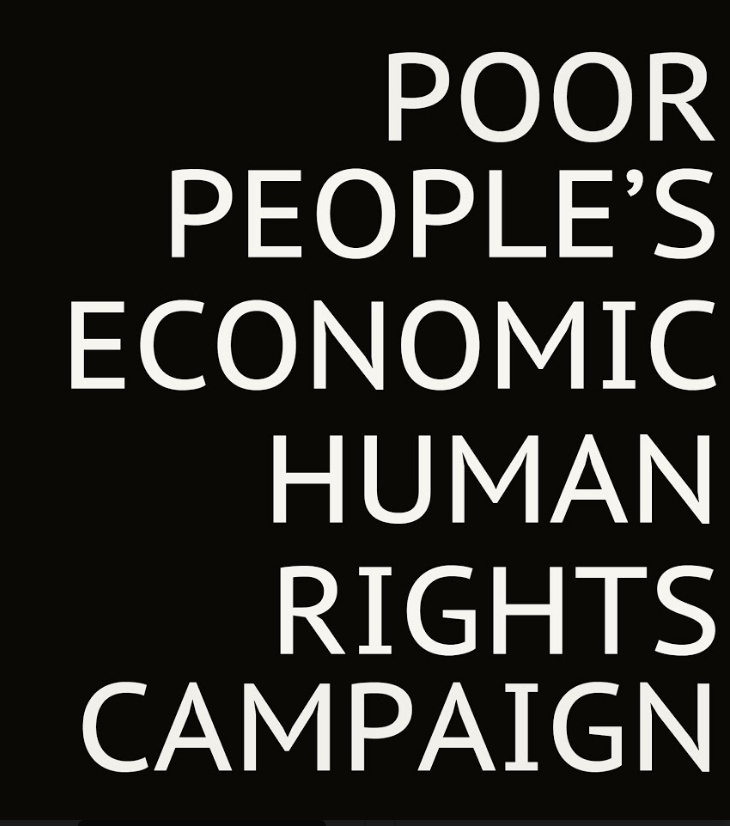What are you organizing FOR?
image by David Aponte
We have been meeting with a variety of organizers and concerned community members across the U.S., talking about plans for the future. People everywhere are saying “we need to reach more people and organize,” or “there are so many new people interested and we need to get them involved with organizing.”
It occurred to me at that moment that we don’t often step back and say, “What are we organizing for?” And I don’t mean to belittle any of the on-the-ground activities anyone is doing. These are people doing good work, organizing homeless encampments, organizing tenants, and building coalitions of like-minded people. But sometimes larger conversations are avoided for the expediency of what’s directly in front of us. As we travel and talk to people, we are in rooms trying to discuss the future of society and how to save humanity. We know we can’t do this one tent or tiny home or takeover at a time, we know we need a grand vision of where we are headed as we are doing the day to day projects of survival and finding good people to grow.
But a lot of times we don’t give ourselves time to pause, stand back, and survey the whole situation. What are we growing towards? We are trying to encourage people to think about that. We don’t think you can rely on the same strategies and tactics for every era. What works in one time period does not necessarily work in another. And part of the conversation we are trying to have with people in our network-building is that we are living through a colossal change in how society operates. At the base of society, everything about how we make and distribute the basic necessities of life is changing. Businesses and operations are automating at every level, at enormous speeds.
Since the 1970s we’ve seen factories consolidate and close, and people get thrown out of huge sectors of jobs because technology allowed for production with fewer and fewer people. The hand work, the assembly line work, started to be done by some machines instead of so many humans. Car production, communications, shipping and warehouse work– so many people in these jobs had to find new careers as the old ones disappeared. But early on there were other jobs to go to that weren’t automated– new service jobs like restaurant work, retail, stocking, nursing, teaching, delivery work. Now, even these jobs are being impacted by automation. There’s not a job you can find that isn’t potentially touched by automation.
If we see the writing on the wall, it means for the first time in human history, human labor is not needed to make and distribute all our goods and services. And that changes everything. Capitalism is changing from a system of human exploitation to a system of computer and robot production. The working class is becoming a new class of unemployable people. This is the reason for mass homelessness, precarious part-time gig economy jobs, and massive jumps in wealth inequality. If our class is becoming unemployable, then somehow this new class will have to get the basic necessities of life from some other way besides jobs or income. How?
Or maybe we won’t get them at all.
If we aren’t thinking about these bigger picture questions, are we content to let the ruling elite think about them? Are we content to let them implement their 5-year, 10-year, 20-year plans for how society should develop? Don’t we think the ultra rich and their think tanks and their corporate culture are thinking about this future? Should we let them decide our fate?
It’s not enough to organize. We need to think about what we are organizing for–in the big picture–with this massic economic change in mind. People need to slow down as things speed up, and think about our next best moves.
We believe there is enormous potential for a unity of our class that has never happened before. But we can’t rely on old ideologies or methods of organizing that we think worked in the past. We need to study history and the changes occurring today to understand the best path forward. We know we can unite our class and take over the means of production to ensure everyone gets what they need to survive and thrive. There is a process to do this. We need to figure it out.
We know the ruling class will fight tooth and nail to hold onto what they have, and distract us and divide us. We have to be clear on the big picture, the goals, the possibilities, and the next steps forward as society moves into something totally new.
We invite you to pause and join this conversation with us. We need everyone, even if you haven’t organized before, or you’re new to politics and activism. Because if we aren’t clear what path we’re on, we shouldn’t just blindly walk it. The first question you should ask when you first get on a train isn’t “how fast will we get there?,” it’s “where is this train going?”
Poor People's Army has continual rounds of free zoom discussions on "the Economic Revolution & Strategies for this Era." The discussions are broken up into four 90-min long sessions. Find out more info here: bit.ly/PPAstrategictalks

